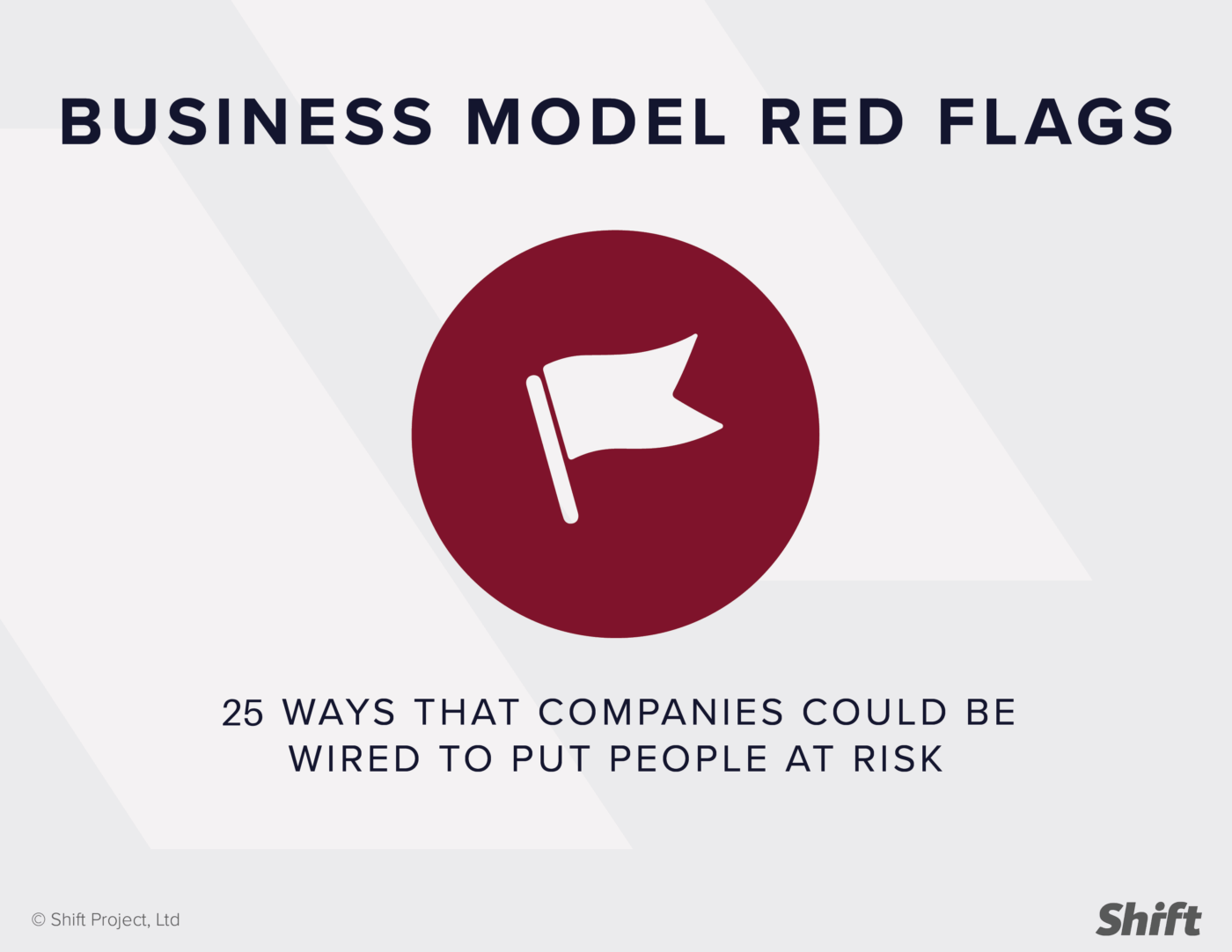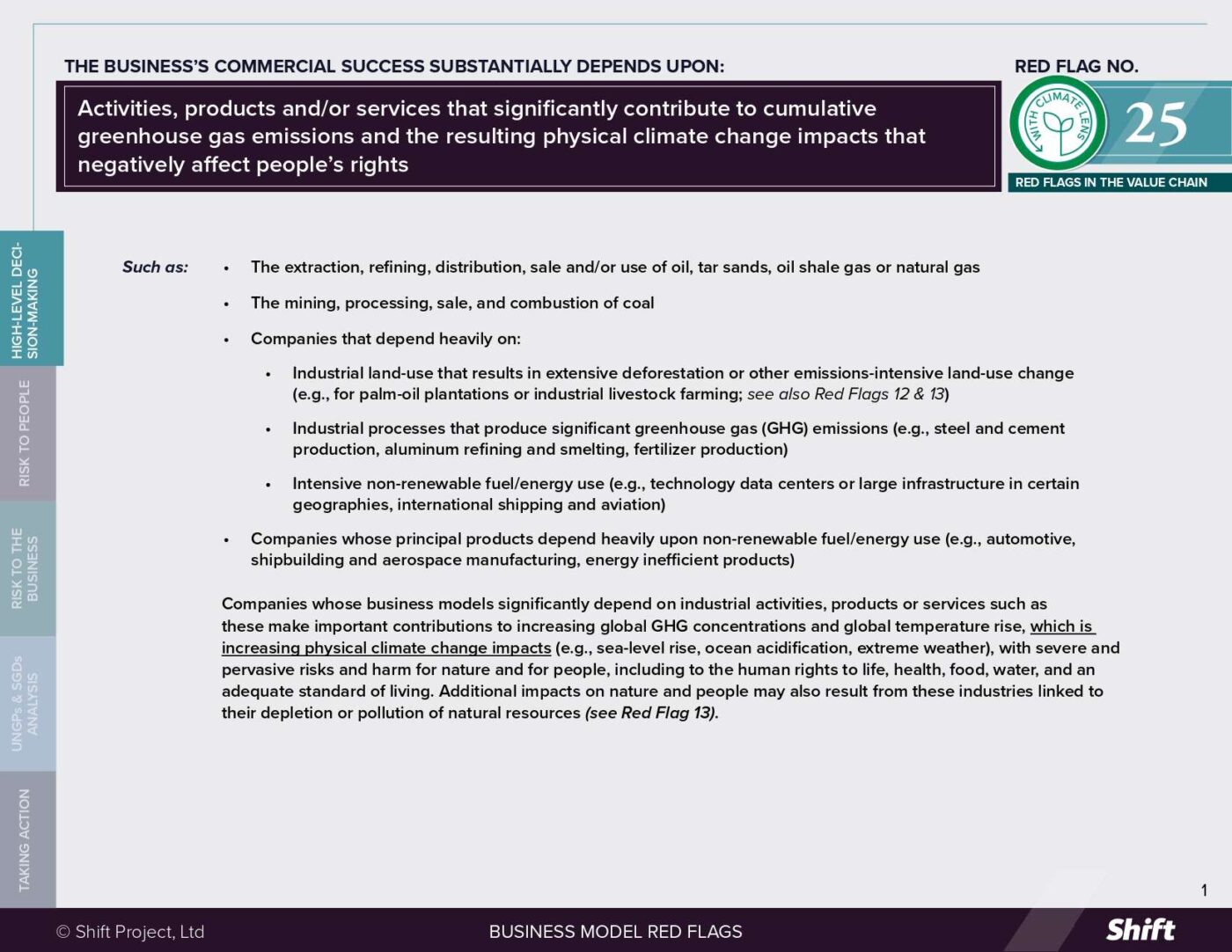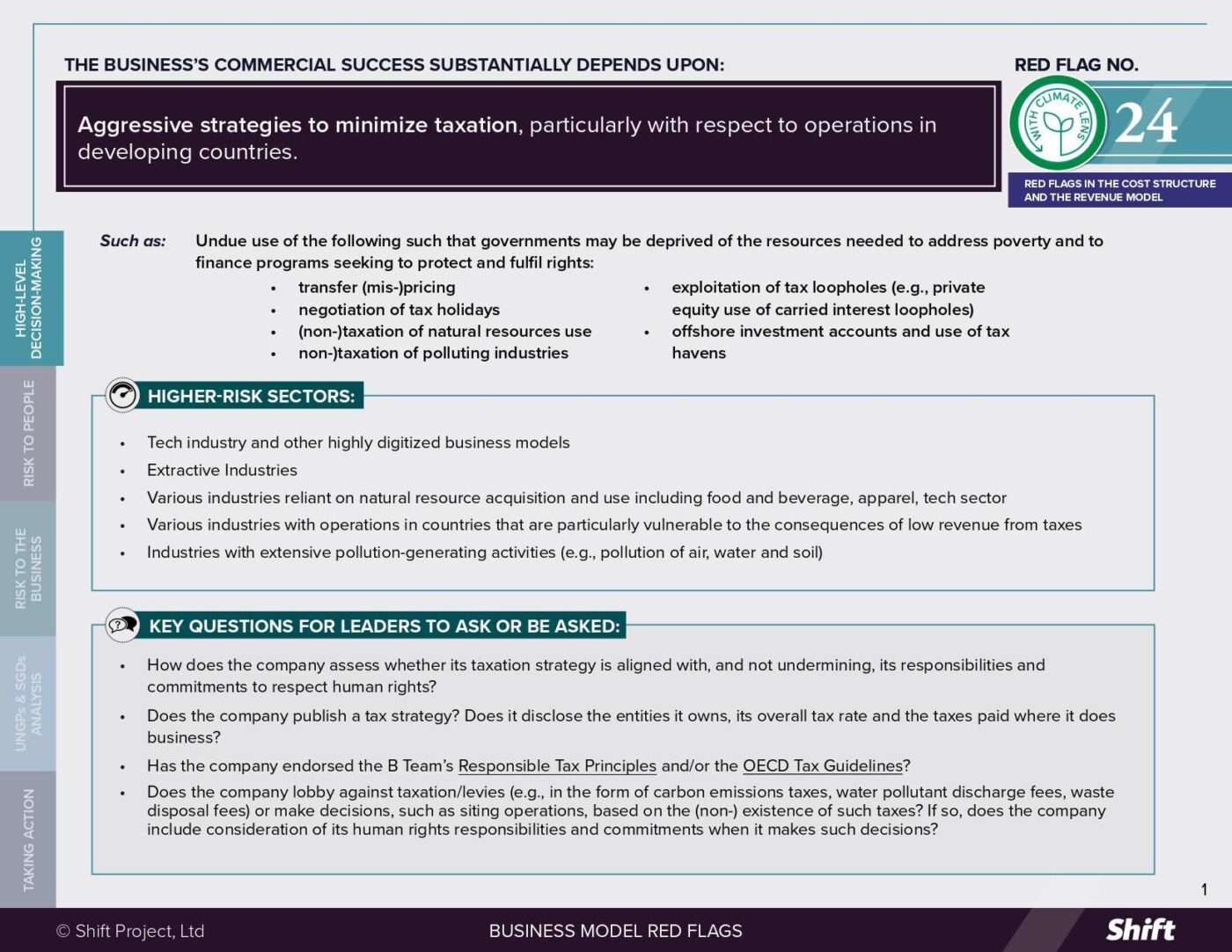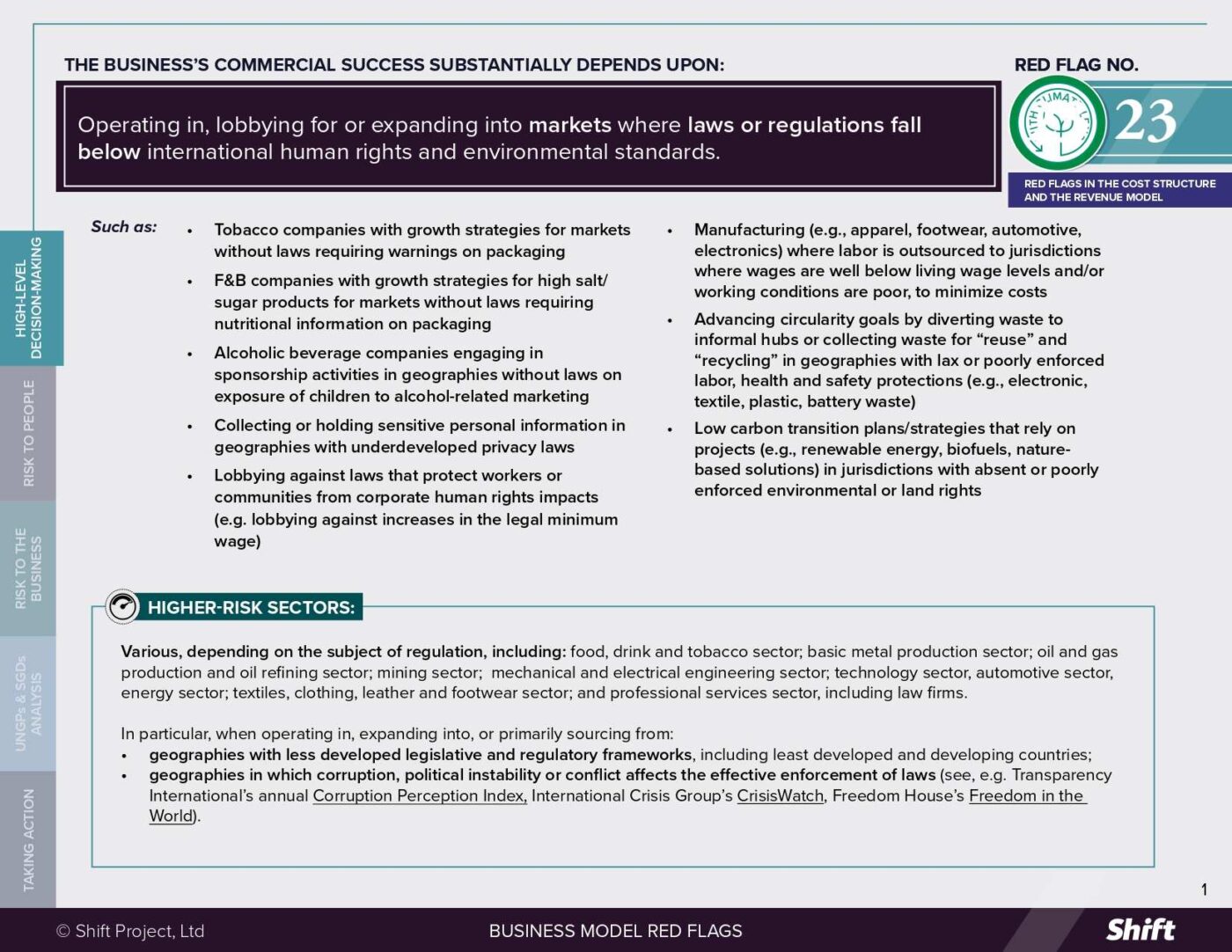Also see this Viewpoint as a PDF.
What’s the current problem with the way some organizations are talking about business contributions to sustainable development – and what’s a better path forward?
1. The problem: misunderstanding the nature of respect for human rights
The Sustainable Development Goals (SDGs) are setting a new and increasingly accepted basis for companies to stake out a position on how they are responsible and sustainable.
Yet with 17 Sustainable Development Goals and 169 related targets, there is a risk that companies simply repackage what they already do in the wrapping of the SDGs, or focus on certain SDGs based on the ease, rather than the impact, of those choices. This is not to suggest that businesses should address all goals. Rather, we believe they need a principled process, that reflects international standards, to identify the SDGs through which they can maximize their contribution.
Companies and states that view business respect for human rights in a compliance/risk/do no harm box will miss its relevance and power to achieve resoundingly positive outcomes.
Human rights are embedded throughout the SDGs. Yet many organizations that are telling business how to think about this – and many leaders in business itself – are failing to understand the place of respect for human rights in this broader framework.
Respect for human rights tends to be seen as something necessary but basic, from which leading companies have already moved on to more innovative, leadership-oriented, collaborative initiatives. (This vastly overestimates progress on human rights within the business community.) Moreover, because respect for human rights is an expectation of all companies, it is often seen as merely a matter of compliance and risk management, and distinct from initiatives that are characterized as transformative.
These pervasive assumptions fail to understand:
- that implementing respect for human rights is an integral part of doing business, not something you do and then move on from;
- that implementing respect for human rights is not just a matter of compliance to be achieved simply through audit and data tracking, but instead requires capacity building, innovation, collaboration and leadership;
- that respect for human rights is not just a “do no harm” proposition, but drives positive change in people’s lives, with many positive outcomes for sustainable development;
- that this positive impact of respecting human rights can drive transformative change at scale, in particular through collaborative uses of leverage across value chains that have the power to improve the lives of millions of workers and community members*;
- that respect for human rights must also permeate any and all other initiatives a company undertakes to contribute to the SDGs, from philanthropy to shared value initiatives, environmental projects to innovative financing, and workforce engagement to anti-corruption efforts;
- that respect for human rights by business is the essential key to unlock achievement of many SDGs, and without which they cannot be achieved.
2. The answer: a true understanding of the power of respect for human rights
In fact, when companies address negative impacts on human rights they can achieve resoundingly positive outcomes. Companies and states that view business respect for human rights in a compliance/risk/do no harm box will therefore miss its relevance and power as part of an SDG strategy.
Instead, companies should see it in a similar way to their environmental contributions to the SDGs, which typically have two parts:
- every company can contribute positively to sustainable development by reducing the negative impacts on the environment associated with its business – including across its value chain;
- some companies will also be able to develop new and innovative products, services and ways of doing business that can further contribute to improving the environment and combating climate change, and should do so wherever they can.
This logic works equally well for the “people part” of the SDGs:
- every company can contribute positively to sustainable development by reducing the negative impacts on people’s human rights associated with its business – including across its value chain;
- some companies will also be able to develop new and innovative products, services and ways of doing business that can further contribute to improving people’s lives, including their enjoyment of human rights, and should do so wherever they can.
Implementation of the UN Guiding Principles on Business and Human Rights – the global standard in this field – is the basis for addressing part (a). It must also inform any initiatives a company undertakes for part (b) – in relation to both planet and people – so they too are carried out with respect for human rights.
3. The way forward: a holistic framework for contributing meaningfully to the SDGs

By adopting the same two-part approach to how they address the “people part” of sustainable development as they do to addressing the “planet part,” companies now have a holistic vision for how they can develop strategies to support the SDGs, which embeds the right understanding of the role and the power of respect for human rights. This view is illustrated in the graphic to the right.
This framework offers a straightforward way for any company to work out how it should and can contribute to the SDGs:
- Analysis: The company maps its most severe actual and potential negative impacts on people and on the planet across its operations and value chain – that is, its salient issues in each dimension;
- Delivery: The company then maps those priorities to the SDGs and identifies how it can maximize positive outcomes for people and planet by reducing these impacts, including through innovation and collaboration;
- Analysis: The company maps the ways in which the nature of its business, skill sets and market position may enable it to innovate additional positive contributions to the SDGs;
- Delivery: The company identifies how it can deliver on that potential, alone or in partnership with others, through processes that respect human rights and the environment.
*[1] The International Labour Organization estimates that in just 40 countries representing 85 percent of world gross domestic product there are 453 million formal sector jobs related to global supply chains. Realizing the rights of these workers would constitute a transformative change. This is relevant not only to SDG 8 on decent work and economic growth; the opportunities unlocked for people when they have decent jobs with living wages include a route out of poverty (SDG1) with improved access to food (SDG 2), to health (SDG 3), to education (SDG 4), and to equality of opportunity (SDGs 5 and 10).
 By Caroline Rees
By Caroline Rees



